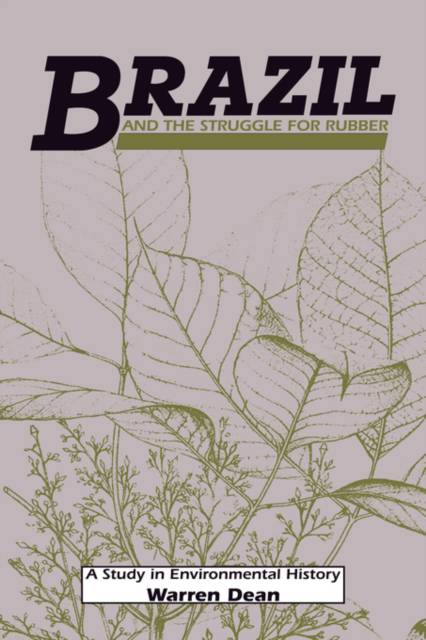
- Afhalen na 1 uur in een winkel met voorraad
- Gratis thuislevering in België vanaf € 30
- Ruim aanbod met 7 miljoen producten
- Afhalen na 1 uur in een winkel met voorraad
- Gratis thuislevering in België vanaf € 30
- Ruim aanbod met 7 miljoen producten
Zoeken
€ 69,45
+ 138 punten
Uitvoering
Omschrijving
Brazil once enjoyed a near monopoly in rubber when that commodity was gathered in the wild. By 1913, however, cultivated rubber from Southeast Asia swept the Brazilian gathered product from the market. In this innovative study, Warren Dean demonstrates that environmental factors have played a key role in the many failed attempts to once again produce a significant rubber crop in Brazil. Dean traces the numerous attempts to plant rubber in Brazil, including the ill-fated Ford estates, and others established by the major multinational tire companies. He also analyzes the struggles of the Brazilian government to foster rubber development, in the hope of obtaining a domestic source of supply for national industries that are now dependent on imports from Southeast Asia.
Specificaties
Betrokkenen
- Auteur(s):
- Uitgeverij:
Inhoud
- Aantal bladzijden:
- 252
- Taal:
- Engels
- Reeks:
Eigenschappen
- Productcode (EAN):
- 9780521526920
- Verschijningsdatum:
- 8/07/2002
- Uitvoering:
- Paperback
- Formaat:
- Trade paperback (VS)
- Afmetingen:
- 152 mm x 229 mm
- Gewicht:
- 371 g

Alleen bij Standaard Boekhandel
+ 138 punten op je klantenkaart van Standaard Boekhandel
Beoordelingen
We publiceren alleen reviews die voldoen aan de voorwaarden voor reviews. Bekijk onze voorwaarden voor reviews.











